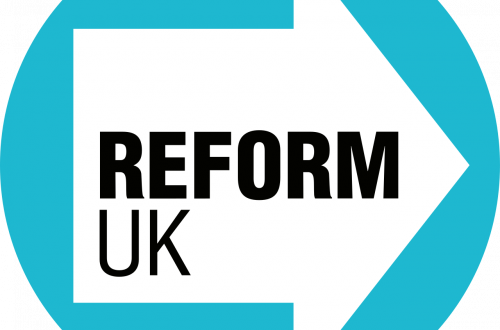Guest post by DaveM
It takes ages to learn to speak Arabic. Longer than you think it should.
The main reason is simple. It’s not a language spoken in democracies. It’s not a language spoken in countries which have transparency, free speech, due process, and which reward critical thinking and analysis.
It’s spoken in countries which are basically run by the intelligence services. This, as you can imagine, tends to make people who live there slightly paranoid. So self-censorship, lying, talking in code or euphemisms, projection, denial and “playing dumb” when a foreigner asks you a question are the ways for citizens to stay safe.
After 35 years of Ba’athist rule in Syria, these safety mechanisms become so institutionalised and internalised that the population ends up doing the regime’s work for it.
This makes learning Arabic in Syria slightly trickier than, for example, going to Paris to learn French. There you could buy a newspaper, open it and ask people questions about the articles and events. You sure as hell can’t do that in Damascus.
Six frustrating months into my stay in Syria, somebody I knew admonished me for not developing my Arabic by speaking to people. I lost my temper with him, explaining that as I couldn’t talk about politics, and pretty much everything there is politics, what the hell could I actually talk about? He put his hand on my shoulder, shrugged his, looked me in the eyes and said apologetically, “You’re absolutely right.”
So at that point I had to get creative and explore other avenues; talking to people was getting me nowhere, just circling round the same set of worn-out lies and clichés.
In that part of the world you have to turn all your previously held assumptions on their head. You end up going against your initial instincts and doing things which initially seem totally illogical– for example, improving your language by not speaking to people.
I retreated into transcribing this in order to learn the language.
An even better way is via comedy programmes. One of the functions of comedy (both here and there) is providing a safe way for dealing with taboo and highly sensitive subjects.
Not only do you learn words but you also get an insight into what actually goes on, side-stepping all the official BS, euphemisms and wishful thinking. You also become aware of the values and expectations of the speakers. It’s essential to know this in order to speak a language. Otherwise you’re just someone who’s memorised a list of words.
One of the funniest shows is the Lebanese channel LBC’s “A Nation Smiles,” which regularly makes fun of the Syrian intelligence apparatus in both Lebanon and Syria.
A lot of the sketches go over my head as I don’t know the reference points. However some of them are incredibly funny. This one is a fantastic parody of Syrian rule and Syrian TV, right down to the studio décor.
This three-minute sketch will tell you more about Syrian rule than 99 percent of all the travelogues, books and newspaper articles I’ve ever read. (A comedy sketch this blatant on would be unthinkable on Syrian TV.)
Presenter: “Welcome ladies and gentlemen. The Americans are trying to promote democracy and freedom in the Middle East and would like it to appear that democracy is something which is attributed to them.
“Well, today we’re here live in the studio and we want to let the Americans know that democracy originated here in Syria.”
(Barks at audience) “Applaud!”
[Audience applauds]
Presenter: “With us in the studio are people selected from all groups within society who are here to question, frankly and bravely, the leadership. And representing the leadership [regime] here is professor Fadhal Sharkoota.”(Barks at audience) “Applaud!”
[Audience applauds]
Presenter: “Leadership representative professor Fadhal Sharkoota will answer your questions. And we’ll start with the first question. [To audience member] Please, sir, your question?”
Audience member #1: “I’m Mehsan Mehsan and I have three questions for the leadership.
“First question. We entered Lebanon as the Arab Deterrent Force [in 1976]. So how come we ended up staying there for 30 years?
“Second question. Madame, you said to us that we [Syrian army and intelligence services] were there to preserve Lebanon’s security. So why then didn’t we prevent the assassination of Rafiq Hariri?
“Third question. As we’re innocent of any involvement in the assassination, why hasn’t the Syrian leadership agreed the six officers [suspected of killing Hariri– I think due to international pressure, four of them are now being investigated] to be investigated?”
Presenter: “Mr Mehsan Mehsan, we thank you for your frank and courageous questions which we’ll let Professor Fadhal here answer on behalf of the leadership.”
Leadership delegate: “I’ll answer Mr Mehsan Mehsan’s questions. But first I’d like us to stop transmission and take a three-minute ad break.”
Presenter: “So you want us to take a three-minute break? [To camera] “Cut! Cut!” [To audience] “Applaud!”
[Audience applauds]
CAPTION: “25 minutes later”
Presenter: “We’re back on air? OK. Ladies and gentlemen, you’re watching our interview with the representative of the leadership, who’s being questioned by members of the audience. OK, ready for the next question?”
Delegate: “Yeah, I’m listening”
Audience member #2 [obviously scared]: “I want to ask the leadership via Professor Fadhal five questions.“The first question. It’s one Mehsan Mehsan asked.
“The second question. It’s also the one Mehsan Mehsan asked.
“The third question. That’s the one Mehsan Mehsan asked.
“The fourth question is, why did you extend the break in transmission from three to twenty-five minutes?
“And the fifth question is this. Where’s Mehsan Mehsan?”
[Shot of empty chair]
Yip, they’ve taken him away to Tadmour Prison.
OK, it’s a comedy sketch, but that’s pretty much what happens in Syria when people start asking difficult questions. They “disappear” and the questions remain unanswered. For their own safety most people learn to stop asking questions, and end up intellectually paralyzing themselves. Asking “why?” is very dangerous indeed.
Not that you’d learn any of this from most of the newspapers, which seem quite happy to take everything spoken in English at face value.
That Lonely Planet-recommended blog featured in the Telegraph article isn’t independent from the Ba’athist regime. If it was, its owner Sasa would be joining Maher Isber Ibrahim, aged 26; Tareq al-Ghorani, Hussam ‘Ali Mulhim, Diab Siriyeh, and ‘Omar ‘Ali al’Abdullah, all aged 22; ‘Allam Fakhour, 29; and Ayham Saqr, 31; in their five-to-seven-year prison sentences for violating Article 278 of the Syrian Penal Code.
Harry de Quetteville doesn’t ask Sasa about imprisoned Syrian bloggers; instead we get this:
“A final message?
“More than anywhere else in the Arab world, Syria suffers from a gap between perception and reality. It is lumped in with places like North Korea and Iran, but it really shouldn’t be.”
When people ask me why it takes so long to learn Arabic, I make something up. I tell them it’s a very complex, sophisticated, esoteric, spiritual language way beyond Western comprehension, etc. etc.
I’d rather do that than tell them about the climate of anti-intellectualism, fear, lies and denial that you have to navigate your way around to make sense of things– including the very language.
People aren’t ready to hear that yet.


